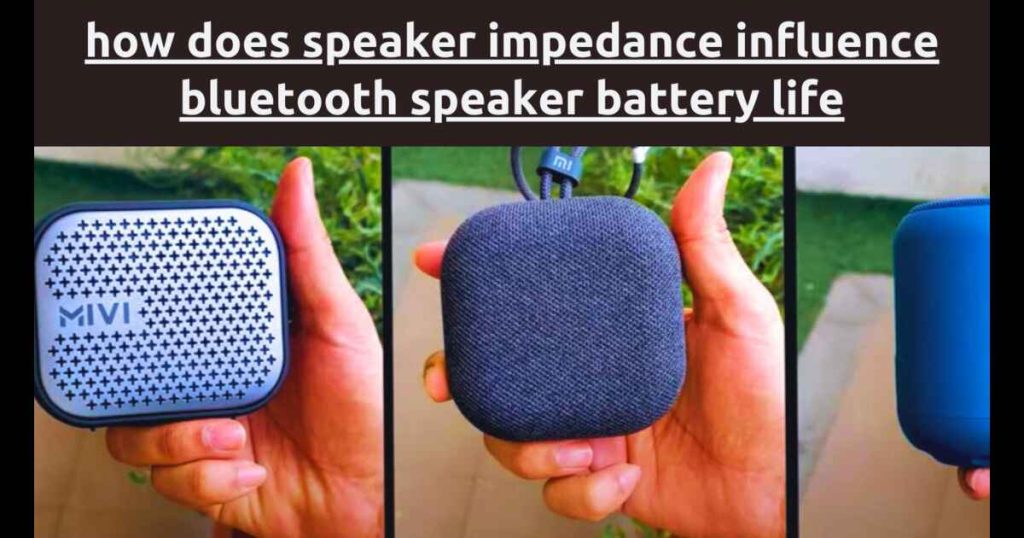
Bluetooth speakers have become quintessential companions for our music cravings, offering portable, wireless convenience. Among the technical facets that define their performance, speaker impedance stands as a critical factor, not just in audio quality but also in the realm of battery life. In this article, we delve into the intriguing connection between speaker impedance and the longevity of Bluetooth speaker batteries.
Lets see how does speaker impedance influence Bluetooth speaker battery life? Also read our comprehensive guide on impedance of Bluetooth speaker and Does speaker impedance affect sound quality?
How Does Speaker Impedance Influence Bluetooth Speaker Battery Life
In this article we will discuss the effect of impedance on battery of a Bluetooth speaker.
Understanding Speaker Impedance
Defining Impedance
Speaker impedance refers to the resistance that the speaker presents to the electrical current from the amplifier. Typically measured in ohms, impedance values vary across different Bluetooth speaker models, influencing the power drawn from the amplifier.
Impedance and Power Consumption
Higher impedance speakers tend to draw less power from the amplifier compared to lower impedance ones. This characteristic affects how efficiently the speaker converts electrical energy into sound. However, the relationship between impedance and battery life in Bluetooth speakers is more nuanced than it appears.
Speaker Impedance and Battery Drain in Bluetooth Speakers
Efficiency and Battery Utilization
Higher impedance speakers generally exhibit greater efficiency in power usage. They consume less power for the same output volume compared to lower impedance counterparts. Consequently, they might prolong the battery life of Bluetooth speakers, allowing for extended playback durations on a single charge.
Balancing Sound Quality and Battery Life
While higher impedance speakers may theoretically conserve battery life, manufacturers must strike a delicate balance between energy efficiency and audio quality. Lower impedance speakers often produce louder sound levels using less power, catering to users seeking volume over prolonged battery life.
Factors Beyond Impedance
Battery Capacity and Speaker Design
Bluetooth speaker battery life isn’t solely determined by impedance. Battery capacity, speaker design, and other components (such as drivers and amplifiers) significantly influence how long the speaker can operate on a single charge.
User Behavior and Playback Conditions
User behavior also plays a role. Factors like volume levels, usage patterns, and Bluetooth connectivity impact battery drain. Higher volumes and constant connectivity tend to drain the battery faster regardless of speaker impedance.
Optimizing Battery Life in Bluetooth Speakers
Selecting Based on Use Case
For users prioritizing extended battery life, opting for Bluetooth speakers with higher impedance might be beneficial. These speakers could offer more playback time at moderate volumes compared to lower impedance models.
Balanced Performance Considerations
However, it’s crucial to balance battery life considerations with sound quality preferences. Lower impedance speakers might offer louder volumes with less power, catering to those who prioritize sound intensity over extended battery life.
Conclusion:
In the realm of Bluetooth speakers, speaker impedance indeed has an impact on battery life, albeit within a multifaceted context. While higher impedance speakers might contribute to longer playback times, the interplay of various factors demands a nuanced approach in balancing battery life with desired sound quality.
Understanding how speaker impedance influences battery life empowers users to make informed choices based on their preferences, be it prolonged playtime or a louder audio experience. Ultimately, finding the right balance between impedance, sound quality, and battery life ensures an optimal Bluetooth speaker experience tailored to individual needs.
